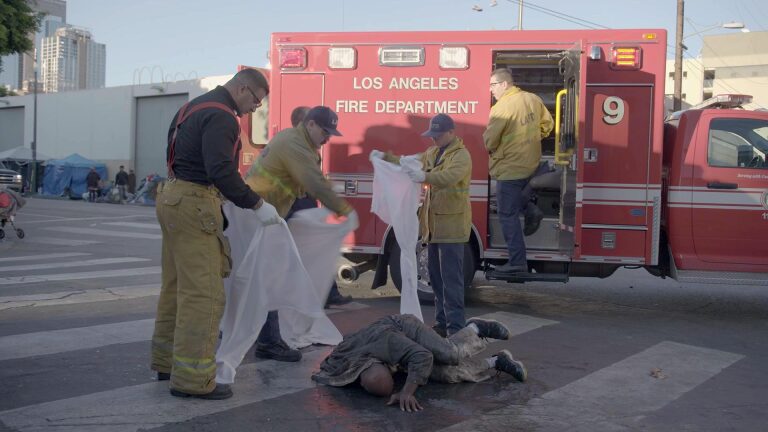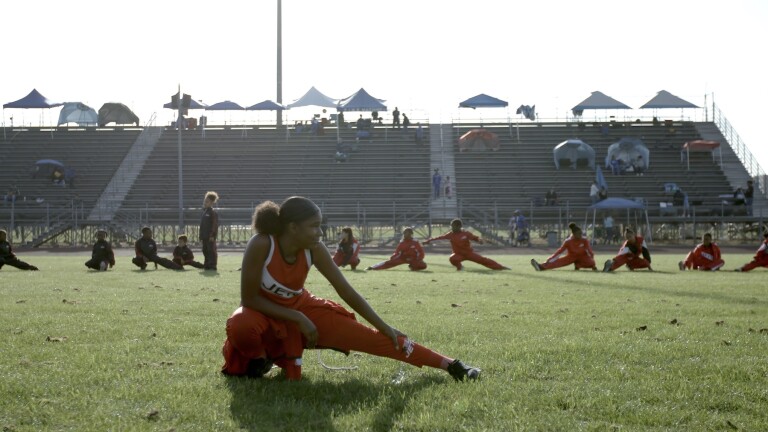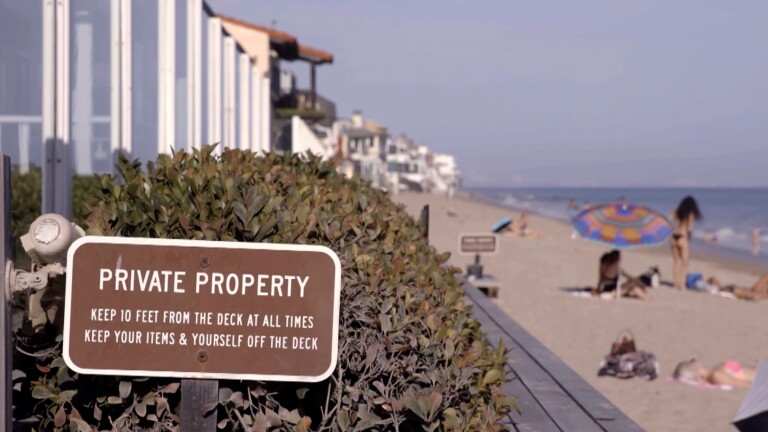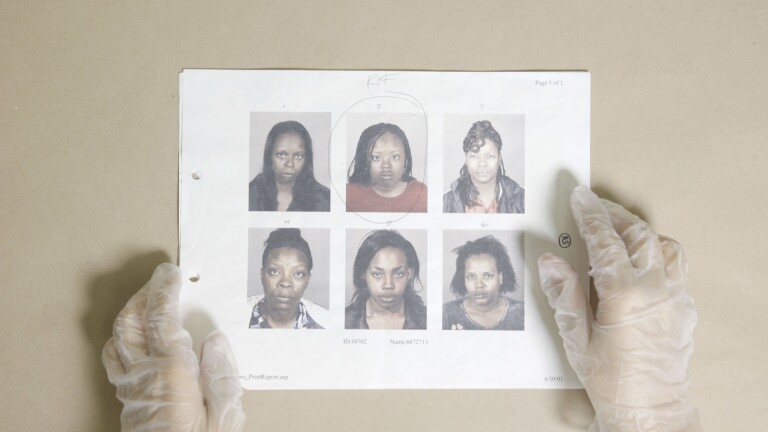
Update: Community Colleges Seeing Progress, New Fears With Prop 30
California's community colleges have been struggling for years. Fees keep going up, courses have been cancelled, and instructors have been laid off. Prop 30, the tax increase pushed hard by Gov. Jerry Brown and approved last November, was supposed to end all that. New money is flowing at last, but will it be enough? In an update to a story we aired before the measure passed, Vince Gonzales tells us there's still plenty of fear about the future.
Vince Gonzales/Correspondent: In the 1960s, California made a promise to its citizens: any student who wanted an education could get one, starting with community college. But that decades-old pledge is in trouble.

Miranda Alvarado: I've seen yelling, I've seen crying, because they have to stay here for another year just for one or two classes. A lot of students have just given up faith. I've noticed a lot of students, they've just given up altogether.
Kathy Holland/Adjunct Professor: Will I have a job next semester? How many classes do I get to teach, if any? Or do I go directly to unemployment and file for unemployment?
Jack Scott/Former CCC Chancellor: They don't want the kind of California that would end up if we let it fail. If you think education is expensive, try ignorance.
Gonzales: That's what we were hearing in October right before Election Day. Just last week, in his State of the State Address, Gov. Brown acknowledged those concerns helped pass Proposition 30 which gives cash-strapped community colleges $200 million in additional funds.
Jerry Brown/California Governor [making speech]: You were alarmed. You stirred yourselves to action and victory was the outcome.
Gonzales: And some of those we spoke to before Election Day, like Adjunct Professor Kathy Holland, weren't able to relax until Prop 30's fate was assured.
Holland: Oh, my God. It was such a sigh of relief. It was like, "Oh, my God, we finally passed it. Whew!"
Gonzales: Holland kept her job teaching at area community colleges, including Pierce College where times were tough.
Holland: We're barely holding our end up. Over at Pierce College, I'm not even allowed to make copies because there is no paper. The school is not going to buy any more reams of paper. We can't even print out our syllabi or exams.
Gonzales: She says the turnaround was almost immediate after Prop 30 passed, especially at Pierce.
Holland: We added 50 classes to the spring semester and we're going to have a full summer semester. We're going to add a hundred additional sections of classes which we haven't done in a couple of years. So, we're going to have a fuller summer session. We'll be able to accommodate more students, which is always a good thing.
Brown [making speech]: With respect to higher education, cost pressures are relentless and many students cannot get the classes they need.
Gonzales: But Gov. Brown created a new wave of angst on campuses statewide when he proposed changes to go along with the new Prop 30 funds. Brown's plan would limit students to 90 credits. After that, class costs would jump four times -- from $46 a unit to $190. And instead of being paid for enrolled students, colleges' funding would be based on the number of students completing their studies. The governor is also pushing for more online courses at the community college level.
Brown [making speech]: The key here is thoughtful change, working with the faculty and the college presidents.
Gonzales: And there is a lot of work to be done. The system lost $800 million to budget cuts in recent years. Enrollment has dropped by half a million students. And while not everyone goes to get a degree, graduation rates at California's community colleges have fallen by almost half since 2006.
Brown's goal is to keep college affordable, classes available, and students on track to graduation. But some say the governor is creating new obstacles for students.
Lorraine Lauing/PCC Student: It's not fair to bankrupt the people that are coming here because they might be older and might have 90 units or 100 units. You don't know why they didn't finish college the first time.
Gonzales: Lorraine Lauing has over 90 credits and says an illness held up her studies. Now she worries the governor's plan could mean the end of her quest for a college degree.
Lauing: I can barely afford $40 a credit without financial aid. If he goes up to $100 a unit, I won't be able to afford college at all. It means I'll have to leave. And I don't want to have to leave, I want to finish. I have two kids at home and I want them to know the importance of going to college.
Scott: In our student success task force we also put more burden on the student.
Gonzales: Jack Scott retired as Chancellor of California's Community College system last year. While he doesn't agree with all of the governor's new plans, in November he told us students needed to change too.
Scott: If you accumulate more than 100 units, if you are on academic probation for two semesters, you go to the end of the line for registration. It's time to get serious folks. We've got a scarce commodity here, and we're not going to allow someone to become a professional student and stick around for years and years and years and not go anywhere.
Gonzales: Students will have the right to appeal any restrictions and the governor's plan must first be passed by the state legislature, where there are already student groups, educators, and law-makers lining up to fight it.























